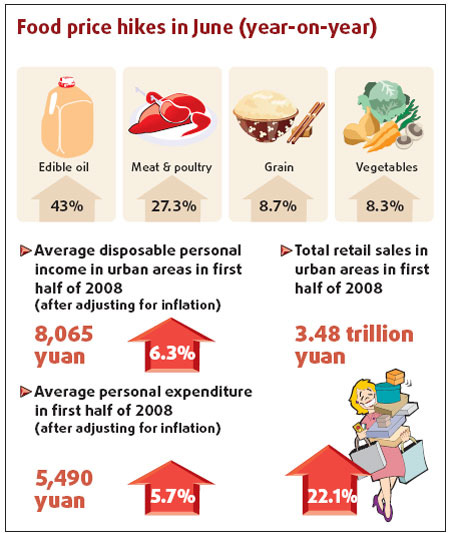Others are economizing by ditching costly branded products in favor of cheaper alternatives.
"I switched to using soaps instead of bathing foam to save money, and, guess what, soaps are just as good as a cleanser," said Tang in Shanghai. She has also switched to a cheaper, local brand of shampoo and has not been able to really tell the difference so far.
Miao Yang, a 26-year-old working at a publishing house in Shanghai, also realized the urgency to cut waste in daily life.
"I've changed all the light bulbs at home into compact fluorescent light bulbs which are said to be four times more efficient. I also remember to unplug the computer and TV every time I finish using them," she said.
"By doing so, I've not only cut down my bills but also saved energy and contributed to environmental protection."
Miao also started to cut down wastage of food and water.
"Ever since I found a 100-yuan bill could not buy as much food and goods as before in supermarkets, I've realized the importance of not wasting food."
"So every time I cook, I try to control the portions of food I use, to be just enough for feeding my family," Miao said.
"Even if there are leftovers, I will put them in the fridge for the next day - not throw them away as before," she added.
Stung by rising gasoline prices, middle-class consumers are also learning to save fuel and choose energy-efficient vehicles.
Deng Jun, a salesman at the Beijing Asian Games Village Automobile Exchange, told China Daily that a growing number of consumers prefer to buy a more economical and small-sized car to an SUV.
"Customers nowadays welcome Japanese brands most, " Deng said,
"Honda, which consumes much less gasoline than most other brands, topped the sales rankings in recent months."

(China Daily July 31, 2008)